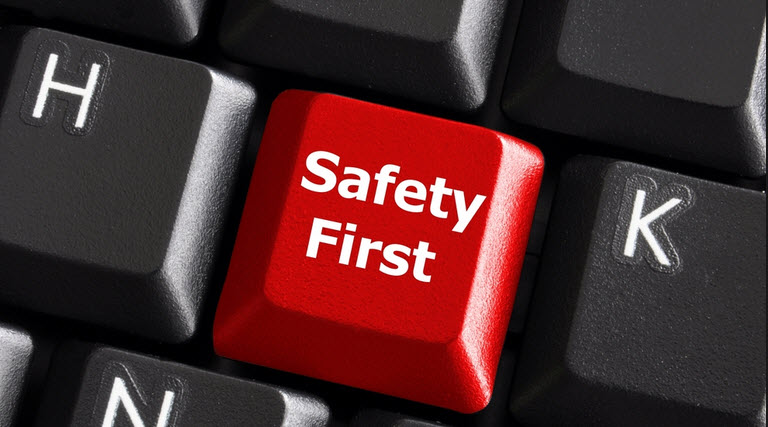Chances are if you are reading this article, you are doing so on a mobile device. Maybe you are seeing it on a desktop, but we all know how important mobile devices have become in our daily lives. Most Americans cannot go a few hours without checking their phone to see if any emails or texts came in or to browse social media and clear those notification alerts.
While overuse of devices is certainly a dangerous habit to get into, often sacrificing health in the name of being connected, it is tough to escape the needs that can be met with these innovations. Everything from shopping to gaming to communicating with friends or coworkers can occur entirely on a smartphone, tablet, laptop, or desktop computer.

Since we use these devices so often, it follows that we should understand how to stay safe and protect them. The last thing you want is for them to get stolen or for someone to access your personal information because you are using the Internet lackadaisically from your phone or computer. Here are some practices to keep your devices safer in 2023.
Install Antivirus Software
Whenever you get a new device, the first thing you should consider doing is installing antivirus software. Viruses are software programs that can damage your data, ruin the functionality of a device, or steal your personal information. Few feelings are worse than using a device and suddenly hearing an alarm and a bunch of random tabs opening, telling you that a virus has infected the machine. Whether you need free antivirus tools for your Android smartphone or a stronger shield on a desktop computer, make sure your devices contain effective antivirus programs.
Keep All Devices Within Reach When in Public
If one of your devices ever gets stolen, it could be a huge burden in the near future. That computer or phone may have tons of private information stored on it that you do not want in the wrong hands. Banking apps, credit card numbers, other financial data, personal information, and more could be compromised if you lose your device. To prevent this from happening, you should always keep your devices within reach if you are in public. If you stand up to go to the bathroom at a coffee shop, leaving your laptop or phone on the table, then it could be taken by the time you get back. It is not worth the risk, so keep all devices close so that opportunistic individuals are not tempted to swipe them.
Download Content Only From Secure Sources
Many situations might cause you to download content off the Internet to store on your devices. Problems can arise if the downloading process is not secured or the source of the download is a sketchy site. One of the most secure content-downloading platforms is Usenet. This discussion forum is a place where users can discuss various topics and download user-generated content in various formats. Since Usenet has its own servers separate from the Internet, downloadables are much more secure. Just find one of the best Usenet providers and plug into this network to take advantage of secure downloading.
Never Click Suspicious Links or Attachments
Phishing attacks are one of the most common forms of cybersecurity risks. They usually come in the form of a message or email that appears important with a link or attachment to click on. Once you click on this link or attachment, it grants access to the phisher to your information or device. Protecting your device from phishing means never opening any suspicious links in your emails or texts. Doing so could result in data theft that will compromise your identity and even your finances.
Keep Software Updated
Your devices all rely on various software programs to function. The more advanced the software, the more likely it is to have better data protection and security measures. These advancements typically happen in the form of either an update to the software or a new product offering. Failing to keep up with updates for your devices and the various applications on them could result in weaker security that puts your machine at risk of a cybersecurity attack. Keep all your programs and devices updated for the best possible security.
Device Security is Not Talked About Enough
It is common for people to not think about their safety when it comes to devices. Generally, unless you have been the victim of a phishing attack, identity theft, or financial information hack, it is easy to ignore the possibility of these problems. Unfortunately, waiting for them to happen will make it too late to mitigate the dangers.
Rather than suffer the consequences of poor device security, take these action steps to give yourself the best chance of safety while owning these technologies. Keep them close so they cannot get stolen and accessed. Install antivirus software and only download from secure sources online. Avoid strange links and always update your software for stronger device security.


Comment Policy
Your words are your own, so be nice and helpful if you can. Please, only use your REAL NAME, not your business name or keywords. Using business name or keywords instead of your real name will lead to the comment being deleted. Anonymous commenting is not allowed either. Limit the amount of links submitted in your comment. We accept clean XHTML in comments, but don't overdo it please. You can wrap code in [lang-name][/lang-name] tags.